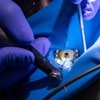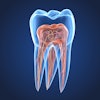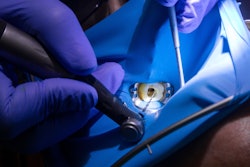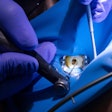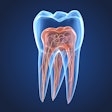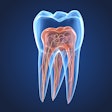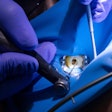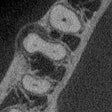The inflammatory condition apical periodontitis (AP) may be more prevalent in women, and it may be more common in root-filled posterior teeth, according to a study recently published in the Journal of Endodontics.
However, men appeared to have a higher rate of larger and more severe osteolytic lesions than women, the authors wrote.
“These findings emphasize the importance of early diagnosis and treatment and highlight the significant sexual dimorphism in the pathophysiology of AP,” wrote the authors, led by Dr. Lucas R.A. Estrela, MSc, of the São Paulo State University Department of Endodontics (J Endod, September 2, 2025).
This cross-sectional retrospective study analyzed cone-beam computed tomography (CBCT) scans from 401 adult patients, including 1,027 teeth imaged between January 2021 and December 2023. Each patient had at least one tooth with an identified apical lesion. CBCT images were assessed using the CBCT-based periapical index (CBCTPAI) to determine the frequency of AP, they wrote.
Researchers evaluated factors such as sex, primary or root-filled infection type, tooth position, and quality of root canal treatment and restoration. AP was classified by the diameter of the radiolucent area, with hypodense regions noted as either primary infections or lesions in root-filled teeth.
Among the teeth with AP, 66.9% were from women patients and 33.1% from men. Furthermore, women showed a higher frequency of smaller lesions (CBCTPAI = 2), while men had more larger lesions (CBCTPAI = 3 or 4), they wrote.
After adjusting for age, men had 1.84 times the prevalence of moderate to severe osteolytic lesions (CBCTPAI = 4 to 5) compared with women (rate ratio: 1.32 to 2.58, p < 0.001). AP occurred more often in endodontically treated teeth, especially posterior ones, and was significantly linked to unsatisfactory root canal treatment quality.
Nevertheless, the study had limitations. The researchers did not account for factors known to influence AP, such as systemic health, diet, and bone metabolism disorders, the authors added.
“Future clinical studies are essential to further validate and strengthen these findings and investigate the biological processes of sex-specific regulation of apical periodontitis while providing a more robust foundation for improved clinical practices and outcomes,” they wrote.

